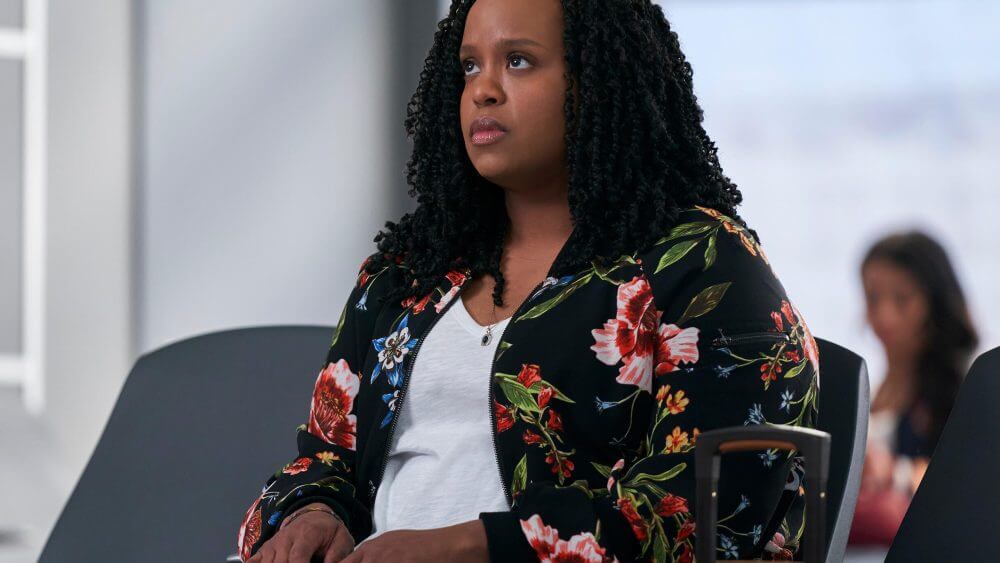world news
How to Die Alone: Natasha Rothwell’s Response and the Challenges of Modern TV
Introduction
The entertainment industry is no stranger to abrupt cancellations, often leaving audiences and creators disappointed. One of the latest casualties in the ever-changing television landscape is How to Die Alone, a heartfelt comedy created by and starring Natasha Rothwell. The show, which received critical praise for its unique storytelling and relatable themes, was unexpectedly canceled after just one season.
For Rothwell, best known for her work on Insecure and The White Lotus, this cancellation is a significant setback, but her response reflects resilience and gratitude rather than defeat. Fans, critics, and industry professionals alike have since engaged in discussions about the difficulties faced by original programming in the streaming era.
In this article, we will explore the significance of How to Die Alone, why it was canceled, Natasha Rothwell’s reaction, and what this means for the future of diverse, original television content.

What Made How to Die Alone Special?
How to Die Alone was a fresh and heartfelt comedy that stood out in a crowded television landscape. Created by and starring Natasha Rothwell, the show explored themes of self-discovery, loneliness, and personal growth. Known for her sharp comedic voice and deep emotional storytelling, Rothwell crafted a series that resonated with many viewers.
The series followed the life of a woman navigating adulthood while confronting her fears, insecurities, and relationships. Unlike traditional sitcoms that rely on slapstick humor or exaggerated tropes, How to Die Alone focused on emotional depth and authenticity, making it both comedic and poignant.
One of the most significant aspects of the show was its representation. Rothwell, a Black woman in comedy, brought a fresh perspective to the screen, highlighting issues often overlooked in mainstream television. The show addressed personal struggles with honesty, tackling themes of body image, self-worth, and societal expectations in a way that felt real and impactful.
Critics praised How to Die Alone for its originality, and fans appreciated its mix of humor and vulnerability. However, despite its strong storytelling and a dedicated audience, the series met an untimely end after just one season.
Why Was How to Die Alone Canceled?
The cancellation of How to Die Alone follows a growing trend of short-lived TV shows, particularly those on streaming platforms. Several factors likely contributed to its early demise, reflecting broader challenges in the modern entertainment industry.
1. Streaming Service Competition
With an increasing number of streaming platforms competing for viewership, it has become difficult for new shows to establish a strong foothold. Unless a series gains immediate and widespread popularity, networks and streaming services often hesitate to invest in additional seasons.
2. Algorithm-Driven Decisions
Unlike traditional television, where a show’s success is measured through ratings and advertisements, streaming platforms rely on algorithms to determine whether a series is “successful” enough to continue. If a show does not reach a certain threshold of viewership engagement, it risks cancellation—regardless of critical acclaim.
3. High Production Costs vs. Viewership Returns
Creating high-quality television comes with significant costs. If a network or platform determines that a show is not generating enough subscriptions or views to justify its budget, it is often canceled to make room for other content with higher potential profitability.
4. Limited Marketing and Promotion
Many canceled shows suffer from a lack of proper marketing. While How to Die Alone was praised by those who watched it, it did not receive the same level of promotion as larger, high-budget productions. Without strong visibility, it became difficult for the series to attract a broad audience.
Unfortunately, How to Die Alone fell victim to these industry trends. While it had the makings of a great long-term series, external factors beyond creative quality ultimately sealed its fate.

Natasha Rothwell’s Response to the Cancellation
When a show is canceled, the creator’s reaction can vary from frustration to indifference. In Natasha Rothwell’s case, her response was one of gratitude, resilience, and appreciation for the journey.
Despite the disappointment of the show’s premature end, Rothwell remained positive, thanking fans, cast, and crew for their support. She acknowledged the challenges of the industry while expressing hope for future opportunities.
Her response resonated with many fans and fellow creators, particularly those who understand the difficulties faced by Black women in Hollywood. Rothwell’s career has been marked by persistence and creativity, and while How to Die Alone may have ended, her ability to tell compelling stories remains strong.
Many industry professionals praised Rothwell’s handling of the cancellation, recognizing that while setbacks are inevitable in Hollywood, they do not define a creator’s long-term success. With her experience and talent, she is likely to find new opportunities to bring her vision to the screen once again.
Her reaction also sparked a broader discussion about the entertainment industry’s treatment of diverse voices. While progress has been made, many talented creators still struggle to get their projects the longevity they deserve. Rothwell’s response highlights the need for continued advocacy for underrepresented voices in television.
The Broader Implications for Diverse and Original Content
The cancellation of How to Die Alone raises concerns about the future of diverse and original storytelling in television. While streaming platforms have expanded opportunities for new voices, they have also created an environment where shows must perform exceptionally well within a short period to survive.
Historically, shows led by women of color have faced disproportionate challenges in Hollywood. Even critically acclaimed series featuring diverse casts have struggled to secure renewals, often due to systemic biases or lack of proper promotion.
The entertainment industry’s reliance on algorithms and data-driven decisions has made it even harder for unconventional shows to thrive. If a series does not fit into a clear commercial formula, it risks cancellation, regardless of its artistic merit.
This issue extends beyond How to Die Alone. Shows like One Day at a Time, GLOW, and Lovecraft Country have also been canceled despite strong fan support. Each time a unique, diverse show is removed from a platform, it becomes harder for similar content to be greenlit in the future.
While progress is being made, the industry must find a balance between financial considerations and the importance of representation. Ensuring that diverse voices are given time to grow and develop audiences is crucial for fostering a richer and more inclusive television landscape.
What’s Next for Natasha Rothwell and the Future of Storytelling?
Though How to Die Alone has ended, Natasha Rothwell’s career is far from over. As an established writer, actress, and producer, she has already proven her ability to create impactful stories.
Her work on Insecure and The White Lotus showcased her talent for blending humor with deeper social themes, and fans eagerly await her next projects. With her growing reputation, Rothwell is likely to continue shaping the television landscape, whether through new scripted series, film projects, or collaborations with other creatives.
The end of How to Die Alone is a reminder that even the best shows can face cancellation, but it is not the end of the road for great storytelling. Rothwell’s journey is a testament to perseverance, and she remains a powerful voice in Hollywood.
For audiences who want to see more diverse, original content succeed, the best way to support creators like Rothwell is to engage with their work, promote their projects, and push for industry changes that allow for more creative risk-taking.
While How to Die Alone may be gone, its impact lives on. Natasha Rothwell’s ability to tell meaningful stories ensures that she will continue to be a force in entertainment for years to come.
Conclusion
The cancellation of How to Die Alone is a loss for fans who appreciated its originality and heartfelt storytelling. However, Natasha Rothwell’s response has shown that even in disappointment, there is room for resilience and hope.
As streaming platforms continue to evolve, it is essential for audiences and industry leaders to advocate for diverse voices and ensure that meaningful stories are given the opportunity to thrive. Rothwell’s journey is far from over, and her impact on television will continue to grow.
By supporting creators and demanding more representation, viewers can help shape a future where unique and powerful stories are not just told—but are also given the space to succeed.
From decoratedbliss

